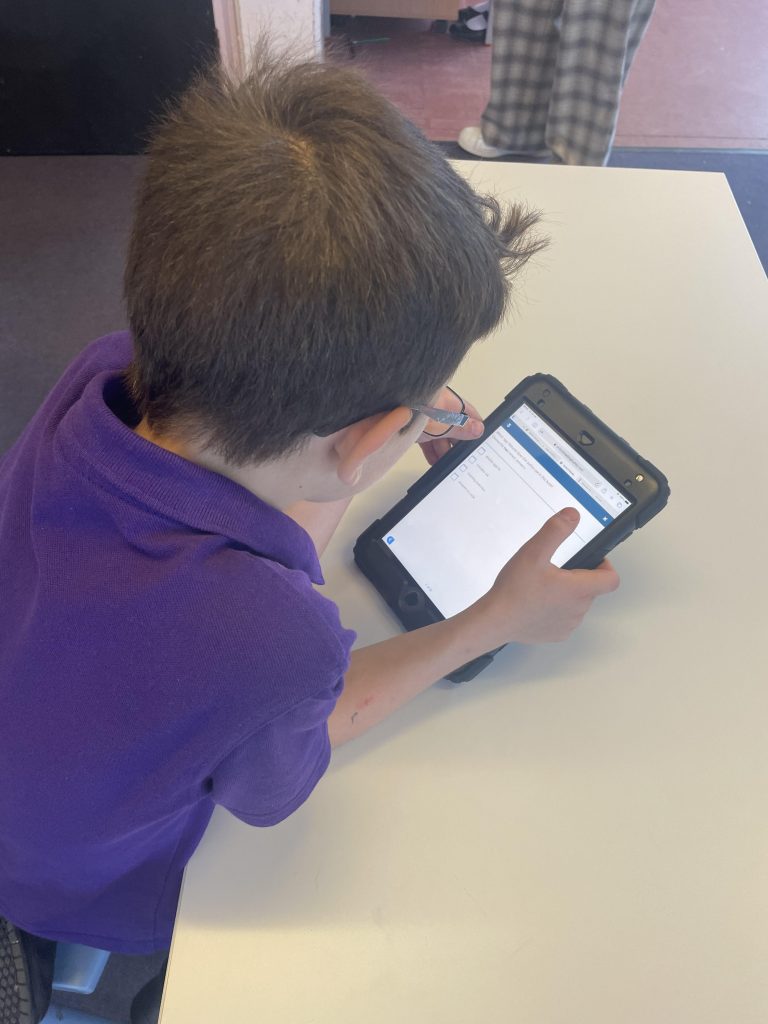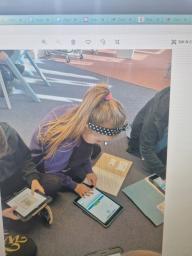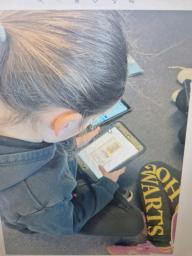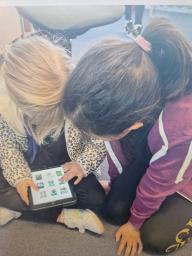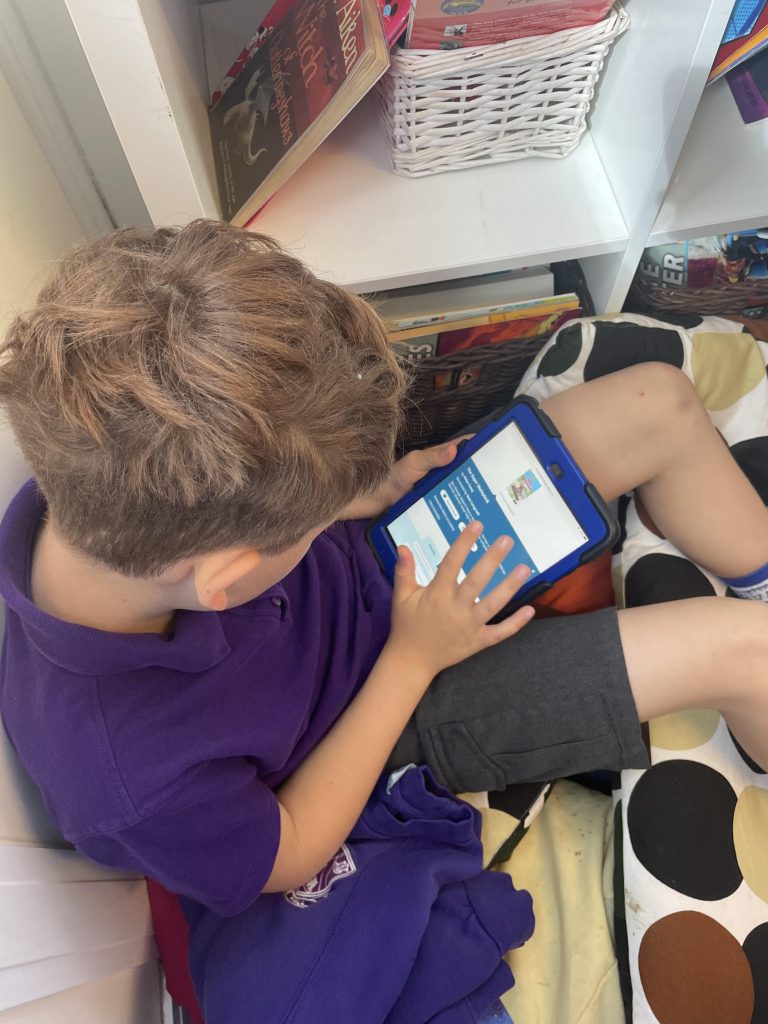After analysing data we identified that reading was area of development across the school so following research we implemented the use of Oxford Reading Buddy (ORB). The scheme is being implemented gradually to ensure we have staff and parent buy in. So far ORB has been used across Year 3 with the intention of rolling it out across the school if it proved valuable.
Our Approach
#389 Improving Reading Through Oxford Reading Buddy – Dale Hall CP School
Frith Allum
What did we do?
“I think it is epic! I like how you can read the book then do a quiz.”
“I really like Oxford Reading Buddy it’s my favourite home learning app.”
“I love Oxford Reading Buddy but it needs more books.”
Comments from some of our children.
Summary of impact
Using ORB has provided the children with another media to access texts, it has appealed to the boys especially and has encouraged the children to read. Parents surveyed showed that 60% of the children used ORB once a week at home, 10% used it more than 3 times a week and 10% used it every day. 90% of parents reported that their children enjoyed using ORB. Using ORB as a whole class impacted negatively as teachers were having to spend more time supporting the children with logging in than supporting children with their reading. However using ORB as a tool during guided reading sessions has enhanced the children’s reading development. In our trial class the number of children going from being at expected rose from 55% in Autumn Term (before trialling ORB) to 67% at the end of Spring Term (1 term of ORB). 100% of children made progress in Spring Term compared to 96% in Autumn Term. Final data analysis will take place in July.
Steps taken
I started by analysing the whole school data and highlighted our ‘weaker’ areas. Reading was identified something that could be improved across the school. I met with the English lead and we discussed possible interventions.
We both conducted research and found evidence that technology had a positive impact on readers, especially in boys. PISA reports that children who engage in online reading activities are generally found to be more proficient readers. (Coventry University-OCED (2010)). Therefore we decided to trial Oxford Reading Buddy. This was a scheme we had dabbled with in the past but not effectively. Rather than try and roll this out throughout the school I selected the year group with the lowest percentage at expected as my target group. We are a two form school so I asked one class to be my focus class and introduce ORB and the other, in the year group, to be the comparison class and refrain from using ORB. During this discussion I explained why an intervention was needed and shared the results of the research. This process took place within Autumn Term. Before the children used ORB at home I conducted parent and pupil surveys to form my baseline data with the intention of repeating the same surveys at the end of the school year.
Throughout the Autumn Term I met with the Class Teacher and discussed various hitches and progress. I worked to address and rectify any issues. After looking at the data at the end of the term, results were inconclusive, I therefore made the decision to use the comparison class to trial ORB in a different way. They used ORB as a tool within Guided Reading activities. This enabled staff to support the smaller number of children logging in which meant there was more time for reading! I also conducted at Parent and Child survey at the beginning of the term to form my baseline data for this group.
Data at the end of the term showed progress in reading in this class which was a huge positive but this data can also be attributed to the usual progress seen in Spring Term therefore the qualitive data from the Parent and Children’s surveys was extremely useful. I continued to meet with the class teachers and English lead to discuss progress with the intervention and how we could use it effectively within our setting. The decision was made between myself, the English Lead and following the insight of the 2 class teachers.
ORB can be a bit tricky to use at times and needs time to allow staff to get used to using it before they use it with their class, passwords might need to be changed to make them more memorable and child friendly. The results of the impact of using ORB is still mixed, we have the rise in attainment levels and positive responses from parents and children in its favour however the technical issues have been tricky to navigate and whilst the class teachers involved have been committed to the trial, it has proved a big stumbling block and clouds the benefit of the intervention.
With all of the above in mind, the plan going forward is to roll out the use of ORB in guided reading sessions across the whole school. I will share my findings of the data analysis to form ‘the why’ of why the intervention is needed, the external research, together with our research in school will form the how and this will give staff a better understanding of why they are being asked to use ORB and are more likely to buy in to it.
Cost
We managed to get Oxford Reading buddy at a reduced price of £425.
Resources required
The Achievement Lead was released once a week and at the initial stages the English Lead was also released to research possible interventions and meet with the implementation leads and teachers.
